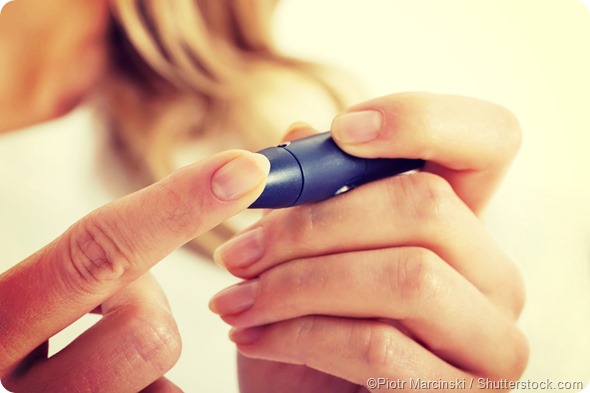Hypoglycemia, or hypos, are the result of blood glucose levels falling too low (less than 4mmol/l).
The symptoms and severity of hypoglycemia can differ for each patient. The symptoms can range from headaches, dizziness, irritability, hunger to difficulty concentrating or blurred vision, and symptoms can escalate with the severity of hypoglycemia to disorientation, loss of consciousness and even, in the most extreme cases, death.
Hypoglycemia can also happen at night (nocturnal hypos), these can be especially scary for patients as they may have symptoms such as intense nightmares, waking with cold sweats, or in very severe instances, not wake up at all.
Why are the symptoms of a hypo often misinterpreted?
For people with diabetes, some of the symptoms in relation to mild hypoglycemia, such as hunger, sweating, irritability or headaches for example, can often be misinterpreted as they can often manifest for many other reasons.
There have been some more severe cases, whereby people with diabetes have become very disoriented, and have been mistaken by people for being drunk and stumbling in the street.
It is important that people with diabetes regularly check their blood sugar levels to ensure that any time that they feel the symptoms, they can treat accordingly if it is an episode of hypoglycemia.
This is one of the reasons behind the development of Hypo Hub; so that people with diabetes and those around them can better interpret the symptoms as being as a result of hypoglycemia and discuss this with their doctor or nurse.

What can people with diabetes do to increase their ability to recognize hypos and better manage them?
It is essential for patients to regularly measure their blood glucose, no matter what diabetes treatment they are on, but especially with insulin treatment where hypoglycemia is a common complication. It’s also important to ensure you have quick access to treatment should you experience a hypo, such as a sugary drink or some other fast acting carbohydrate.
If patients are experiencing hypoglycemia, it is also important to have a conversation with your doctor or nurse on your next visit. As part of Hypo Hub, we have developed a hypo journal for patients to download in order to do this as we believe it’s vital for patients and healthcare professionals to talk about hypos in every consultation.

How can talking to a doctor or nurse about hypos help?
There has been a lot of research done that shows that hypos are still going unreported by patients. It is very important for both sides to discuss hypoglycemia at every appointment in order for patients to better recognize hypoglycemia, but also for the healthcare professional team to be able to advise and help the patient to better manage their hypos through lifestyle and treatment options.
By using the hypo journal from the Novo Nordisk Hypo Hub, it provides a basis for that conversation with a journal that will allow patients to track hypos as they happen, and be able to remember them, and the circumstances around them in their appointment.
What long term impact can hypos have?
One of the more important complications is hypoglycemia (hypo) unawareness, which is when patients have repeated recurrent hypoglycemia and over time they stop experiencing the symptoms that inform them that they are having a hypo. This is very serious as patients could be experiencing dangerously low blood sugar which could lead to loss of consciousness or worse and they would not be aware this was happening.
There has also been a lot of research looking at long term effects of hypoglycemia that look at the neurological and cardiovascular complications for patients.
How common are hypos?
Hypoglycemia is a very common complication of diabetes, but despite numerous pieces of research, patients do not always discuss their hypos with their healthcare professional team making it very difficult to quantify the frequency of hypos.
Can you please give an overview of Hypo Hub? What resources does this provide?
Hypo Hub is an online resource developed to provide practical information and guidance for people living with diabetes, and those around them, to better understand the often misunderstood signs and long term impact of hypoglycemia.
Hosted on Novonordisk.co.uk, Hypo Hub resources include a Hypo Journal (a diary to track and monitor hypos) as well as tips on how to recognize and treat a hypo.
What’s your vision for Hypo Hub?
Our vision is that this becomes a valuable resource where people with diabetes can visit to get the information and resources they need in order to get a better handle on hypoglycemia, whether they have experienced one episode, or recurrent episodes.
We want this site to be a tool to enable them to better manage their condition, by helping patients to monitor all episodes and to get patients and healthcare professionals to effectively discuss hypoglycemia in every appointment.
What do you think the future holds for people with diabetes?
This is a very interesting question to which there is no simple answer.
There is a lot of focus on diabetes as we know this is a growing condition, with more and more people being diagnosed, partly because people are getting access to better healthcare across the world, but also because our lifestyles are changing.
There is a lot of research constantly happening into better therapies, better ways of detecting and measuring blood glucose, better algorithms and ways of treating diabetes to improve the lives of patients.
At Novo Nordisk, we put the patient at the center of everything we do and, we will continue driving change to defeat diabetes.
Where can readers find more information?
You can find more information at:
and also through patient sites such as: Diabetes UK
About Rahul Kapur
 Dr Rahul Kapur currently works as Head of Medical Affairs, for Novo Nordisk UK and Ireland, joining in 2015.
Dr Rahul Kapur currently works as Head of Medical Affairs, for Novo Nordisk UK and Ireland, joining in 2015.
Prior to this, he held other medical roles for Novo Nordisk, based in Copenhagen, more recently as Senior Global Medical Advisor at Novo Nordisk A/S, following his role as a Research Scientist for Novo Nordisk in the department of stem cell biology at the Hagedorn Research Institute.
Dr Kapur has a specific research interest in hypoglycemia, stem cell biology and beta cell regeneration, for the treatment of type 2 diabetes.
He has been the recipient of several awards and scholarships, including an Industrial PhD fellowship from the Danish Agency for Science, Technology and Innovation and has been lead or contributing author to articles on the genetics of type 2 diabetes and beta cell regeneration as well as hypoglycemia clinical research in diabetes. Dr Kapur is a licensed Medical Doctor from the St Johns Medical College in India.